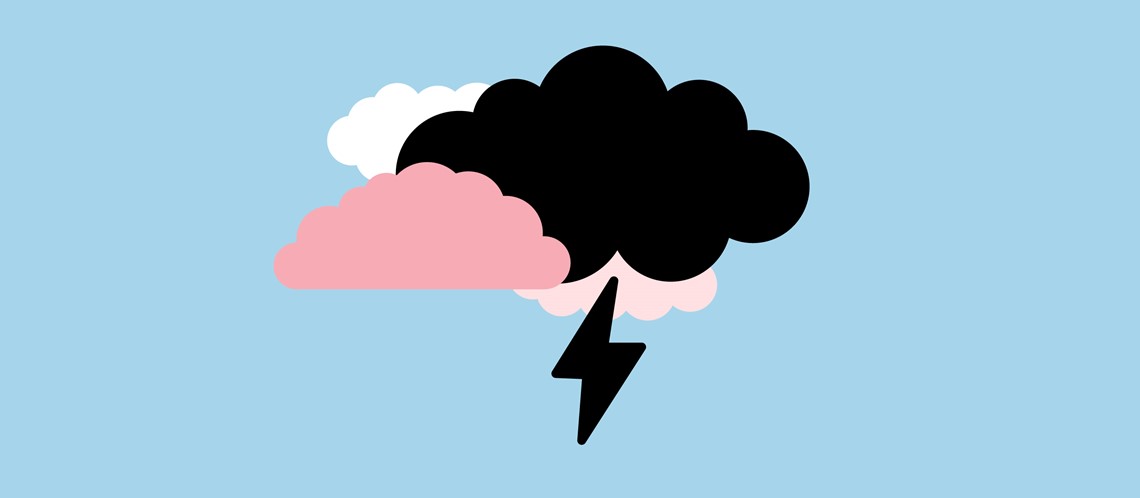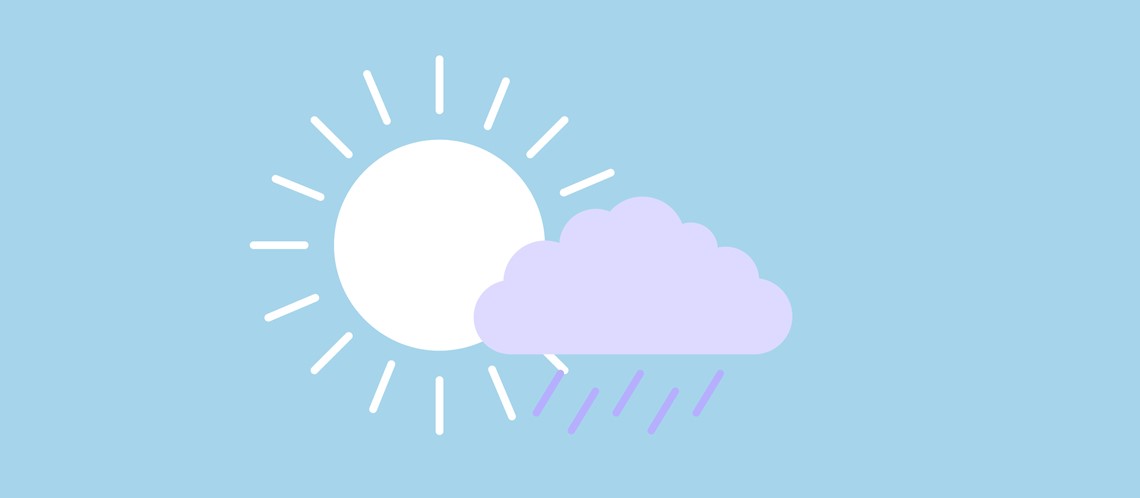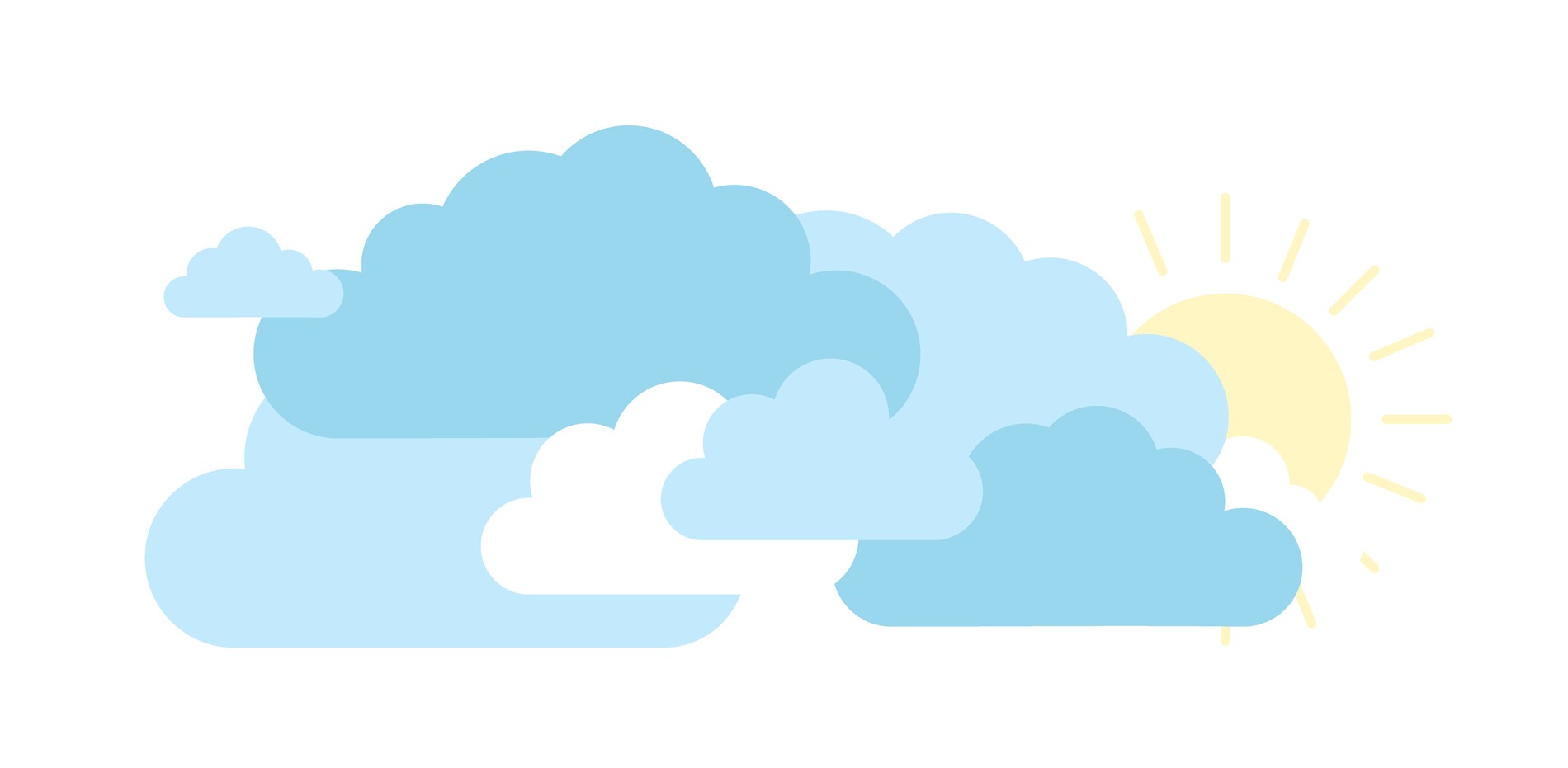How to Weather the Storm: Looking After Your Mental Health
Content Warning: This article briefly touches on mental health themes such as depression and suicide. Please take care while reading – if you need help, please find a selection of links to mental health support services and resources at the bottom of this page.
He kai kei aku ringa
There is food at the end of my hands
A brief introduction to this article
In light of recent events, we thought it was important to talk about the positive impact that accessing mental health support can have in Aotearoa – particularly for queer, non-binary, trans, takatāpui, MVPFAFF+ communities and people who are living with HIV.
We’re living in a time where it’s really, really hard to belong to one of these communities. From a wave of public and online vitriol being directed at us, to symbols of our own rainbow pride getting openly defaced and destroyed. Just to name a few things.
How are we supposed to look after our mental health in a time like this?
According to the Mental Health Foundation of New Zealand:
In general, young people who identify with a sexual or gender minority group are more at risk of stress, distress, and suicide. Youth with intersectional identities (e.g., queer Asian youth or Māori who are disabled and bisexual), can also be at a higher risk.
Mental health can be a bit of heavy topic. And, if you’re neurodivergent, are navigating (or have navigated) the mental health system, or you live with a mental illness, it’s possible that this one might bring up some complicated feelings for you.
So, I’m not going to sit here and tell you what you should or should not be doing in terms of your own mental health situation. However, if you’re struggling right now, if you’re having trouble coping with things, or if you feel like you just need someone to talk to… please know:
- You deserve to be supported
- You are not alone in how you’re feeling
- You are part of a community who want you to thrive
Please note:
This article was written by a Burnett Foundation Aotearoa (BFA) staff member, with contributions from the BFA Services & Outreach, Counselling and Peer Support team. This also includes excerpts from a community member, Shane*, who told us about their experience with accessing counselling from Burnett Foundation Aotearoa:
*Name has been changed

“A friend suggested I try the free counselling service at the Burnett Centre, after I experienced a heartbreaking breakup. The counselling helped me learn to love myself, and identify negative patterns of behaviour.” - Shane
Hurihia to aroaro ki te ra tukuna to atarangi kia taka ki muri i a koe
Turn your face toward the sun and the shadows will fall behind you
Know that the sun will rise tomorrow
When you’re going through a hard time, one of the platitudes that you often hear from well-meaning people to try and comfort you, goes something like... ‘Well, tomorrow is a new day. At least you can go to sleep tonight, and you can count on the fact that the sun will still rise tomorrow, it will be a new day, and you will feel better.’
It’s a nice thought, and it’s true that a good night’s sleep can help. A lot of things can change as you sleep. Your brain rests, your cells regenerate, your muscles repair themselves and little by little, your body recovers from the activity from the previous day. You ‘reset’ yourself.
However, our wairua, or spirit, doesn’t necessarily recover the same way.
Sometimes, a new day doesn’t just wash away everything that made yesterday suck. Perhaps, like Shane, you’ve just been broken up with, you’ve received some upsetting news – or you’re struggling with something in your heart. For this, it really helps to talk to someone.
If you’re a queer or rainbow person, there is nuance to this. There are parts of our experiences that can only really feel ‘seen’ and ‘understood’ by other people from our own community. This is why it's important to have queer-led mental health services in Aotearoa.

“The counsellor I had at Burnett Foundation was so helpful, they just understood so much about our people, and they made me feel really comfortable.” - Shane
Waiho i te toipoto, kaua i te toiroa
Let us keep close together, not wide apart
"Crazy weather we're having, huh?"
Before my Nana got dementia, and before she passed away, I distinctly remember that she would send my Mum the exact same type of txt message every single day:
Hi. 10 degrees today. A bit chilly.
Random, right? Just these little check-ins every day, to tell my Mum what the temperature was. Sometimes she’d follow up, to say that there was an earthquake near her home in Wairoa that she had felt. Sometimes my Mum would reply with the forecast for us in Tāmaki Makaurau too.
As a small tamaiti, it didn’t really mean much to me, but as I have gotten older... I think that these texts served more of an emotional purpose for both my Mum and her Mum than I once thought. Perhaps what that little weather reminder was really saying, was ‘hey, this is what life looks like for me today’. All they needed to feel connected was that daily weather update.
- - - - - - - - - - - - - - - - - - - - - - - - - - - - - - - - - - - - - - - - - -
From our team:
“Peer support can be a really positive experience for someone who, for example, may be waiting for an HIV result. We can create a space for them to unpack their feelings, be seen by someone in their community, and to just talk to us about what’s going on for them.”
- Luke, Burnett Centre Peer Supporter
- - - - - - - - - - - - - - - - - - - - - - - - - - - - - - - - - - - - - - - - - -
Stuff to think about:
Who do you have in your life that you can regularly check in with? Does anyone regularly check in with you? Have you tried texting (or calling) 1737 to talk to a trained counsellor? (It's free)

He kokonga whare e kitea, he kokonga ngākau e kore e kitea
A corner of a house may be seen and examined, not so the corners of the heart
Identifying a storm in the distance
There’s an effect in physics called the ‘Doppler Effect’, which basically refers to the way that sound, light, or other 'waves' will shift in frequency as you move further or closer toward an object.
This is the phenomena behind technology like 'radar guns' that police use to track the speed of cars, or ‘doppler radars’, which is how we’re able to predict the movements of weather patterns like rain, snow and storms. Buzzy stuff.
Imagine if we had a kind of ‘doppler radar’ for predicting all the stuff that comes toward us in life – the good, the bad, the in-between. Our wins and losses. The days where we feel absolutely full of mana – and the other days, where it’s a struggle to even get out of bed.
Like, imagine if suddenly the weather app on your phone started notifying you: ‘Anxiety coming in the next 24 hours – dress comfortably’. Or, ‘Mostly good vibes today – with a chance of mild panic attacks’. I know, it sounds ridiculous, but humour me here. If you could track, predict and prepare for your emotional climate, life would probably be just a tad bit easier, huh?
Well, perhaps this isn’t such a far-fetched idea. Counselling can help you understand yourself, deepen your introspection, and help you identify the signs and triggers that can lead to certain mental health patterns for you.
- - - - - - - - - - - - - - - - - - - - - - - - - - - - - - - - - - - - - - - - - -
From our team:
“It’s my privilege to get to know the people who reach out to us for help, and to recommend the right person on our team who can support them, based on what they need.”
- Victoria, Burnett Centre Support & Therapeutic Service Lead
- - - - - - - - - - - - - - - - - - - - - - - - - - - - - - - - - - - - - - - - - -
Stuff to think about:
What times in your life have you felt like you needed support? Do you feel confident enough to cope when life throws the unexpected at you? If you could predict when you were about to face a mental health challenge, how would you prepare yourself?
“Counselling helped me understand the patterns of my actions, and why things happened with the break-up. My counsellor helped me identify all these reasons behind things, and they all ended up connecting like a pearl necklace in front of me.” - Shane

He moana pukepuke e ekengia e te waka
A choppy sea can be navigated
Protecting yourself when the storm comes
When something challenging comes your way – and you find that you’re struggling to cope – the best first step is to talk to someone. A loved one, friend, whānau or family member, or even a coworker that you trust.
Next, it helps to talk to someone outside of the situation – particular a counsellor or peer supporter, like one of our team members at Burnett Foundation Aotearoa or any other queer or rainbow mental health service (see details below).
If you’ve taken that step – ka pai and well done! It’s not always easy to ask for help, but it’s a brave and incredibly kind thing to do for yourself.
…but, what if there’s a wait time? What if the earliest session you could book is a week from now? What do you do when you’re in the ‘thick’ of it, and you need help now?
- - - - - - - - - - - - - - - - - - - - - - - - - - - - - - - - - - - - - - - - - -
Some quick things you can do now:
- Get in touch with a support service who you can text, call, email (or sometimes online chat) to immediately talk to a trained counsellor – details below
- Try your best to limit your phone usage – I know we've all heard this before, and it's easier said than done, but evidence has shown that limiting your phone use is crucial in getting a good night's sleep. If it's hard, you can work your way up from putting down your phone 30, to 15, to 10 minutes before bed. Combine this with mindful breathing for a great nighttime routine!
- Start journaling your feelings. Research has shown that simply recording your thoughts and feelings regularly can have a positive impact on your overall mood
- Try to set aside time for your hobbies, interests and activities that you enjoy. This can sometimes be hard to do when you are stressed or you have commitments that need to take priority. However, just taking a small break out of your day to listen to a song you like or play a short game (e.g Wordle, Connections, Candy Crush, Pokemon Go) on your phone to distract yourself
- Get moving – try to set aside time for some light, low-impact exercise throughout your day. It could even be as small as a 5-minute walk around a local park near your home or workplace. Research has shown that this can also have a positive impact on your mood
- Try to stick to a routine – sometimes when we are feeling stressed, we might throw our routines out the window because our attention is focused on something else. You might stay at work an extra hour than usual, go to bed later, or not eat lunch at your regular time. However, doing this too often can lead to feeling overly disorganized, or chaotic, which can increase feelings of stress or anxiety even further (as well as neglecting your needs). You don't need to maintain an entire routine, of doing everything you usually would - but keeping at least one aspect of your routine intact can help - for example, trying your best to take a break at the same time every day
- Try some meditative practices, like breathing exercises (some useful apps you can try on your phone to guide you through this include Breethe and Headspace). When we are stressed, we sometimes tend to take short breaths, which limit oxygen to our brain and can make us feel even worse. Try to be aware of when you do this
- - - - - - - - - - - - - - - - - - - - - - - - - - - - - - - - - - - - - - - - - -
Stuff to think about:
Do you practice any of these methods to cope in the moment? What works for you? Have you talked to your loved ones, friends or whānau about what methods they use?

Mental health support services
Burnett Foundation Aotearoa
The Burnett Foundation Aotearoa Counselling & Peer Support team is made up of skilled and experienced members of the following communities:
- Queer and rainbow people
- Takatāpui and Māori
- Immigrants
- People living with HIV
You can talk to our team about any topics relating to your mental health as a queer or rainbow person, living with HIV or any feelings or thoughts you have about getting tested for HIV.
For more info and booking, click here.
- - - - - - - - - - - - - - - - - - - - - - - - - - - - - - - - - - - - - - - - - -
Outline
https://outline.org.nz
0800 688 5463
- - - - - - - - - - - - - - - - - - - - - - - - - - - - - - - - - - - - - - - - - -
Positive Women
- - - - - - - - - - - - - - - - - - - - - - - - - - - - - - - - - - - - - - - - - -
Body Positive
https://www.bodypositive.org.nz
- - - - - - - - - - - - - - - - - - - - - - - - - - - - - - - - - - - - - - - - - -
1737 – Need to Talk
https://1737.org.nz/
(call or text) 1737
- - - - - - - - - - - - - - - - - - - - - - - - - - - - - - - - - - - - - - - - - -
Youthline
https://www.youthline.co.nz/
(call) 0800 376 633 | (text) 234
- - - - - - - - - - - - - - - - - - - - - - - - - - - - - - - - - - - - - - - - - -
Depression Helpline
https://www.depression.org.nz/
(call) 0800 111 757 | (text) 4202
- - - - - - - - - - - - - - - - - - - - - - - - - - - - - - - - - - - - - - - - - -
Lifeline
https://www.lifeline.org.nz/
(call) 0800 543 354 | (text) 4357
- - - - - - - - - - - - - - - - - - - - - - - - - - - - - - - - - - - - - - - - - -
Anxiety NZ
https://anxiety.org.nz/
0800 269 438
- - - - - - - - - - - - - - - - - - - - - - - - - - - - - - - - - - - - - - - - - -
The Mental Health Foundation of New Zealand has a great list of many different helplines on their website here: https://mentalhealth.org.nz/helplines
- - - - - - - - - - - - - - - - - - - - - - - - - - - - - - - - - - - - - - - - - -
Just a Thought offers free Cognitive Behavioural Therapy (CBT) courses online, helping you learn how to interact differently with thoughts and identify behaviours that enhance wellbeing: Just a Thought
- - - - - - - - - - - - - - - - - - - - - - - - - - - - - - - - - - - - - - - - - -


